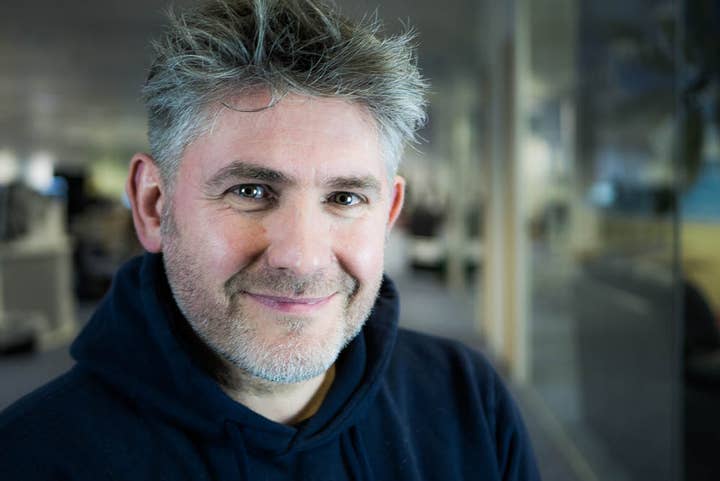“We need to move away from short-form VR experiences”
NDreams' VP of development Tom Gillo discusses the company's plans to become a AAA VR developer
In defence of the VR industry, it did warn everyone that success wasn't going to happen overnight.
Not that everyone listened. The media was building up VR as the next big technological revolution. Investors of all shapes and sizes were writing huge cheques to VR specialists.
And then, when the audience didn't arrive straight away, the media moved on. Investors (some of them, at least) scaled back their support. It turned out this wasn't going to happen overnight after all. Why didn't anybody say so?
As the attendees of GDC gear up to hear about the next major technological revolution -- from AI to game streaming -- the VR industry continues to build, albeit without the hyperbolic fanfare of the past.
"Anyone who thought VR was going to happen in an 18-month window was being a little bit short-sighted"
Gradually, the quality of VR games has increased. The headsets are getting better and less cumbersome. Sales are slowly building. Only last week, Beat Saber emerged as perhaps the first VR game to sell one million copies.
And there is still money available for VR companies from the investment community. Mercia Technologies is one such investor, which has supported UK developer nDreams in its efforts to become a "AAA VR developer".
"The first mobile phone game that I made was back in the year 2000 at Virgin Interactive," recalls Tom Gillo, vice president of development at nDreams. "It was Chess and Backgammon. Two games that are really very basic. It was another seven years after that before the iPhone took off, and then it was another few years before smartphones became ubiquitous.
"Anyone who thought VR was going to happen in an 18-month window was being a little bit short-sighted. VR is incredibly innovative, but we are so early on this journey. I have absolutely no doubt that it will be a defining technology for the first half of the 21st century."

Gillo, like nDreams, has been involved in VR since its inception. His early work saw him develop various VR prototypes at PlayStation's London Studio, before securing his current role. Throughout our talk he acknowledges that nDreams is a studio that's been VC-backed, but believes the company will be in an enviable place for when VR truly takes off. Which, he insists, is just a matter of time.
"I can see a natural convergence of a lot of technologies that are being talked about at the moment. For me, cloud compute and what's happening with the potential of cloud computation, 5G networks, the convergence of VR and AR, the massive investment in AI, and ultimately the reduction in local processing power that's required -- it's just going to facilitate that mass adoption from people... We're talking pretty pacy stuff. You're probably looking at something that's lightweight and wearable in the next ten years.
"You're probably looking at something that's lightweight and wearable in the next ten years"
"We're going to be in this era, soon, where data is the most valuable commodity, and if you can start to analyse what people are looking at when they're wearing their headsets and smart glasses, then I can see a day in the not-too-distant future where there are massive data sets of visual information that are being parsed. Everybody is headed towards that, and to think that they're not, I think that's foolish.
"That stuff is probably further out than the next two or three years, but in the near future, for us, it's about the increased scope of games and production values and sophistication of those games... The tipping point will be, probably, 2021. That's my best guess right now.
"There is this interesting dynamic at the moment, which is that consumer expectation hasn't been diluted -- everybody is eager for great experiences -- but those great experiences cost a lot of money to make. It's hard to do that in a very small market. So there is a natural drive, of course, to increase the size of that market so that we can in turn increase the scope and sophistication and production values of the games we're making."

Finding revenue from VR projects is the key to this growth, and Tom has identified three areas on which to focus.
"Well, there are games," he begins. "Games of increasing budget, increasing production values and sophistication. Then there's a massive opportunity and great things happening with location-based entertainment (LBE), as well. We have entered this market with a tailor-made version of Shooty Fruity Arcade. It's doing well. It's early days, but it is us dipping our toe in that water.
"We also had a title called Perfect Balloon Flight. That game was with Starbreeze, so you can work out what happened there. But that LBE market... if you look at most predictions, that's set to double in size over the next 24 months. It's a big opportunity.
"The consumer expectation hasn't been diluted, but those great experiences cost a lot of money to make. It's hard to do that in a very small market"
"Finally, VR social worlds... Mark Zuckerberg at Oculus Connect 5 reiterated his desire for a billion people in VR. I think it's only a matter of time before we see massive traction in that space in one form or another. And for us, it's about moving forward on all three of those verticals as and when we can. As the opportunities arise and present themselves, the key thing is that we are in a position to capitalise on those."
It's not all about the technology, of course. Gillo is especially excited about Oculus Quest, the VR headset that doesn't require expensive hardware. He acknowledges that ease of use and a drop in price will play a key role in VR building an audience worthy of bigger projects.
This belief has powered nDreams and its investors into growing its team. The company now boasts 70 employees and expects to grow to 90 in the short-term.
"We believe in this," Gillo continues. "We estimate that PlayStation has sold around four million headsets. And I am convinced that the budgets are going to increase because four million headsets... it's easy to see that all you need is to double that, and you have an addressable market size where you really can start to make money from this... As an industry we do need to move away from short-form VR experiences that are perhaps sub-$1 million in scope, because consumers are not going to engage with that now."
He concludes: "VR is an easy target, and has been over the last couple of years, after that initial hype and excitement. But if you look at the numbers, whether that's PlayStation VR or Oculus or HTC, they're doing well. HTC has a lot of headsets coming. Quest is exciting. And then there's the growth of the location-based VR market.
"We've been lucky that we've been backed by a VC, but we've built on that and we've started to position ourselves in a good way. It's not doom and gloom. If you visit nDreams, you'll see a huge positivity here."
